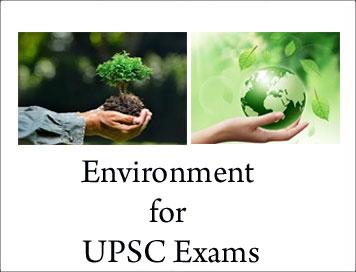(HOT) UPSC Current Affairs 2025 PDF
NEW! The Gist (NOV-2025) | E-BOOKS
Delhi Declaration on Agro biodiversity : Environment for UPSC Exams
Delhi Declaration on Agro biodiversity : Environment for UPSC Exams
- The 1st International Agro biodiversity Congress held in New Delhi from 6th to 9th November, 2016 was attended by 900 participants from 60 countries.
- The conference was organised by the Indian Society of Plant Genetic Resources and Biodiversity International, a CGIAR Research Centre headquartered in Rome, Italy.
- Throughout the Congress, delegated discussed various aspects of access, conservation and use of agrobiodiversity in 16 technical sessions, four satellite sessions, a genebank roundtable, a public forum, a farmers’ forum and poster sessions.
- Based on these deliberations, the delegates unanimously adopted the Preamble and following declaration:
- We call upon nations to accord top priority to the agrobiodiversity conservation and their sustainable use towards achieving targets of SDGs relating to poverty alleviation, food and nutritional security, good health, gender equity and partnership.
- We recognize the importance of traditional knowledge on agrobiodiversity of farm men and women, pastoralists and other tribal and rural communities and their central role in its conservation and use for a food and climate resilient world. We, therefore, call upon countries to develop the necessary funding, legal and institutional mechanism to ensure and facilitate their continued active participation.
- We urge researchers and policy-makers to initiate, strengthen, and promote complementary conservation strategies to conserve and use agrobiodiversity including crop wild relatives in more dynamic way to ensure a continuum between ex situ, in situ and on farm conservation strategies to combat food and nutrition insecurity as well as adverse effects of climate change, land degradation and biodiversity loss.
- We invite researchers to employ modern technologies including, but not limited to, genomic, space, computational, and nano-technologies for characterization, evaluation and trait discovery using genetic resources. The aim should be to achieve efficiency, equality, economy and environmental security in agricultural production systems and landscapes.
- We reemphasize the necessity of global exchange of plant, animal, aquatic microbial and insect genetic resources for food and agriculture to meet the ever-growing food and nutritional needs of each country. Nations also need to harmonise their multiple legal systems and prioritize the improvement of their phytosanitary capacities to facilitate safe transfer of genetic resources using latest technologies and trans-boundary partnerships.
- We strongly recommend that the governments and societies put grater emphasis on public awareness and capacity enhancement programs on agrobiodiversity conservation and use.
- We strongly suggest developing and implementing an agrobiodiversity index to help monitor conservation and use of agrobiodiversity.
- We urge public and private sector partnerships to actively invest in and incentivize the utilization of agrobiodiversity to address malnutrition, increase the resilience and productivity of farms, and enhance ecosystem services leading to equitable benefits and opportunities with particular emphasis on women and youth.
- The UN is urged to consider declaring soon a ‘Year of Agrobiodiversity’ to draw worldwide attention and to catalyze urgent action.
- We unanimously recommend that a congress focusing on agrobiodiversity be held each 3-5 years in order to maintain emphasis on this important area that we have realized in Delhi, for which a continuing committee be formed.

